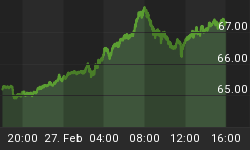The Environmental Protection Agency's new regulations aimed at reducing carbon emissions by 30 percent will no doubt lead to a cleaner economy. But the road there will be paved with methane.
By requiring reductions in the energy intensity per megawatt-hour of electricity generation, utilities will have the ability to choose from an array of options for how to meet the targets.
Energy efficiency will likely be the first choice. Renewable energy will certainly play a big part, as well.
But one of the major ways utilities will comply with EPA rules is by fuel switching from coal to natural gas. By the EPA's own estimate, coal generation will decline by 20 percent to 22 percent by 2020. That will create an opening for natural gas, which could rise by up to 45 percent, jumping from 22 billion cubic feet per day to 32 bcf/d.
The Obama administration has bet its climate legacy on this trend, which was already underway before the EPA regulations. This is why the administration chose 2005 as a baseline, when emissions were near a peak. 2005 predated the shale gas revolution, which led to significant reductions in carbon dioxide emissions as cheap natural gas displaced coal. By 2013, the U.S. had already achieved about a 10 percent reduction in emissions since 2005 - meaning we are already well on our way to the 2030 goal.

Since natural gas burns much cleaner than coal, producing about half as much carbon dioxide, making the switch from coal to gas can go a long way to achieving the rest of the remaining reductions, the administration seems to be thinking.
The big problem is that we don't know what's happening with methane emissions. Natural gas, which is essentially methane (CH4), may burn cleaner than coal, but what happens when it isn't burned? As a greenhouse gas, methane emitted into the atmosphere is more than 20 times as potent as carbon dioxide over a 100-year period.
Natural gas production leaks methane along its entire supply chain - from drilling to storing, processing to distributing. The EPA estimates that methane emissions have actually declined over the past 20 years as technology has improved. And this needs to be true for the EPA's assumptions to work out with its climate plan.
The problem is that many scientists dispute those claims. Robert Howarth of Cornell University believes that methane leakage could be much higher than the government says, which would mean pushing utilities to switch from coal to natural gas may not be constructive. He has conducted studies that conclude methane leakage far exceeds EPA estimates. "Converting to natural gas plants, which is what this latest rule is likely to do, will actually aggravate climate change, not make things better," Howarth told Bloomberg News. "It's well enough established to suggest the EPA is on the wrong side of the science."
The natural gas industry has aggressively pushed back against Howarth's findings, pointing to other studies that show lower methane leakage. But the problem is that the science just isn't all there yet - we don't know exactly how much methane is leaking. Nevertheless, the Obama administration is ploughing forward.
In its regulatory analysis for the new carbon rule, the EPA recognized the methane problem, but has punted on the issue for now. "The EPA is aware that other GHGs such as nitrous oxide (N2O) (and to a lesser extent, methane [CH4]) may be emitted from fossil-fuel-fired EGUs...The EPA is not proposing separate N2O or CH4 guidelines or an equivalent CO2 emission limit because of a lack of available data for these affected sources," the report said.
Natural gas may still have a climate benefit over coal. And even if it doesn't right now, methane leakage could turn out to be a very fixable problem, as engineers figure out how to plug the leaks in the supply chain. But for now, President Barack Obama's climate plan hinges on this uncertainty.
Source: http://oilprice.com/Energy/Energy-General/Obamas-Climate-Plan-Is-Leaking-Methane.html
By Nicholas Cunningham of Oilprice.com















